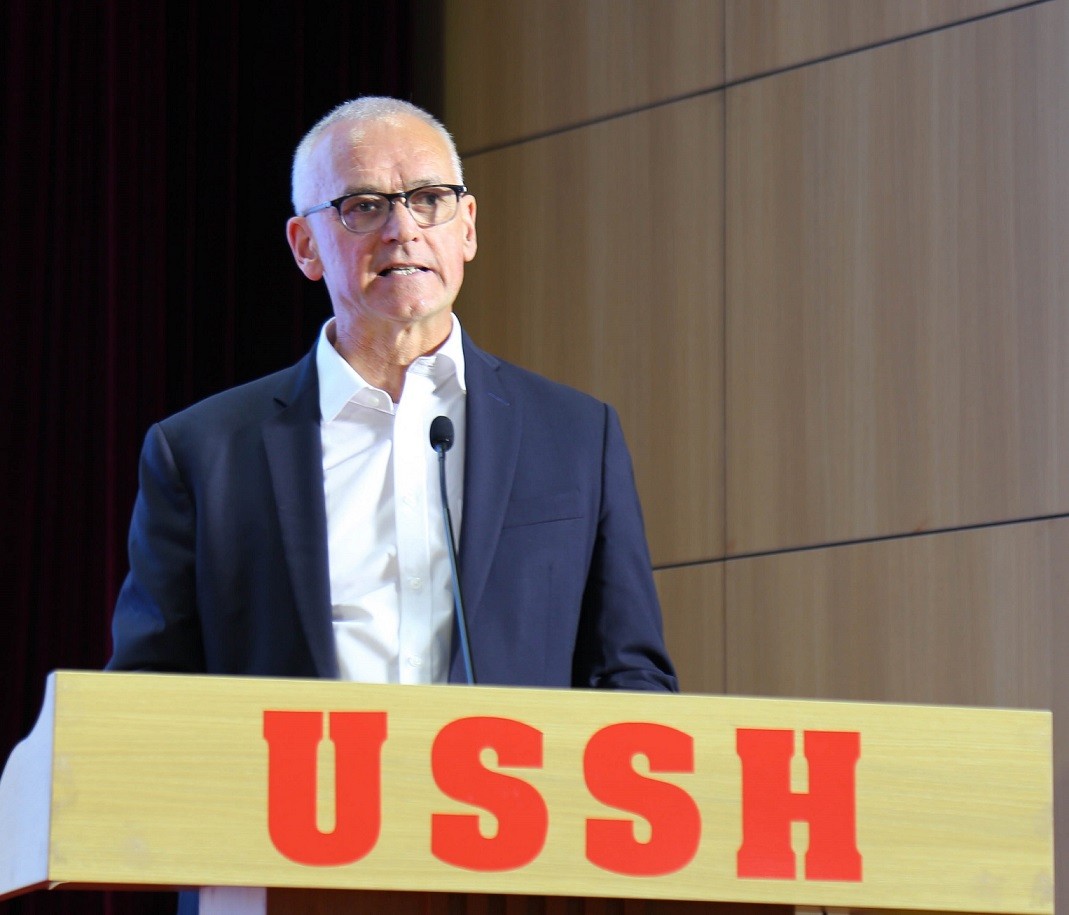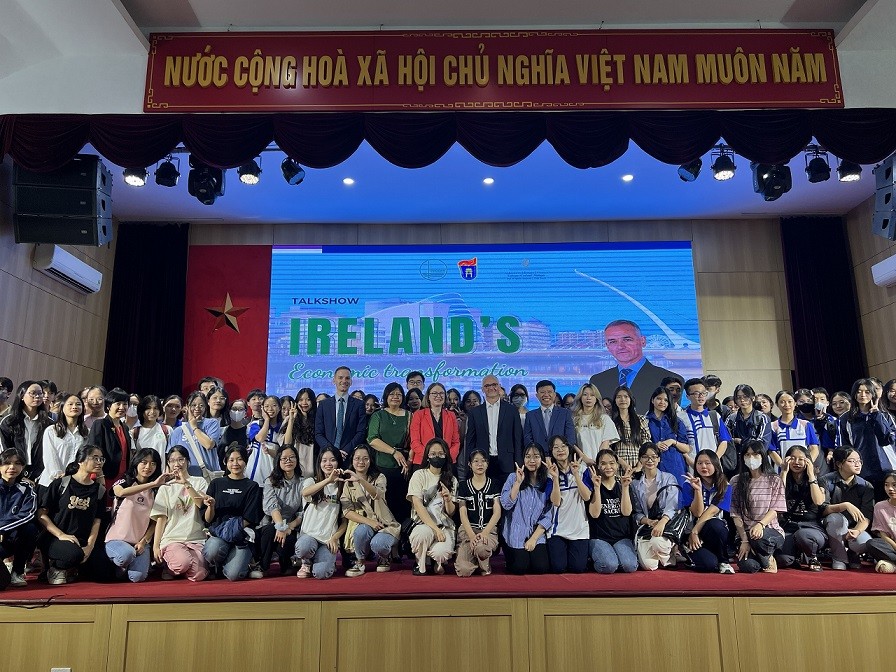
Vietnam has made great strides, Irish economic expert Alan Barrett
Latest
 |
| Prof. Alan Barrett, CEO of the Economic and Social Research Institute - ESRI. (Photo: USSH) |
CEO of the Economic and Social Research Institute (ESRI) Professor Alan Barrett (*) made comments on Vietnam's economy and shared Ireland's economic development experience during an interview to The World & Vietnam Report on the occasion of his business trip to the S-shaped country.
Good morning Prof. Alan Barrett. Is it your first visit to Vietnam? How do you feel about the coutry during this business trip?
Yes, this is my first time in Vietnam and it has been wonderful to discuss with my fellow economists how Vietnam’s economy has grown and developed in recent years.
Your visit's agenda included a talk with students of Vietnam National University - Hanoi on the topic 'Sharing Ireland's economic development experiences with Vietnam'. Why did you choose this topic at this time?
Ireland has undergone an economic transformation over the last fifty years. We have moved from being one of Europe’s poorest economies to being one of the richer ones. Much of this transformation was related to a re-orientation in economic policy whereby inward, protectionist policies were replaced by policies which emphasised the attraction of foreign investment and export-led growth. Ireland’s growth model tends to be of interest to international audiences and clearly this is the case in Vietnam.
Since the reform policies launched in Vietnam in 1986, known as Doi Moi, Vietnam's economy has developed remarkably with significant achievements in eradicating poverty, exporting food and other products where Vietnam has comparative advantages, such as textiles, footwear, agriculture and seafood... and attracting a great deal of foreign direct investment (FDI). As an Irish leading economic expert, how do you evaluate Vietnam's development process? From your views, what are the strengths and challenges facing Vietnam's current socio-economy?
I cannot claim to be an expert on Vietnam but in reading about the economy prior to my visit, it is clear that great strides have been made. And as your question suggests, Vietnam has made good use of the areas in which it has a comparative advantage. But looking ahead, Vietnam will face the challenges that all countries face such as ensuring the fruits of economic growth are spread widely and that the link between economic growth and inncreasing greenhouse gas emissions is broken.
 |
| Professor, Dr. Alan Barrett and students of Hanoi National University, October 2023. (Photo: USSH) |
Over the past decades, Ireland has developed dramatically, moving from a small agriculture-based economy to a modern and open service-based economy, with a remarkable track record in attracting FDI. In your opinion, does this situation in Ireland have any similarities with Vietnam? And what can our country learn from Ireland's successful experience in this area?
Possibly the most important lessons relate to later stages of foreign direct investment so let me explain. For many countries, early waves of FDI are based on low labour costs and the nature of the jobs created is relatively low-skilled. This of course is positive relative to no jobs but over time, the ambition should rise to see FDI bringing higher-quality, more knowledge-intensive jobs.
This will be needed to satisfy the ambitions of the many bright, intelligent students that I met in Hanoi. But Vietnam might also need to think about increasing educational attainment more generally – as Ireland did – so that skill-based FDI is attracted.
Today, Ireland is a destination for high-quality higher education, a hub for technological innovation and a leader in pharmaceuticals. These are also areas that Vietnam is currently focusing on developing. In your opinion, what aspects of Ireland's successful experience are suitable for Vietnam? What can be the solutions for Vietnam to overcome difficulties and promote its strengths?
As a general point, I would make the same point as in 4/ above – high educational attainment of the population is needed for innovation in a range of areas. A second point, more specifically for pharma, relates to the regulatory environment. Ireland has benefited from being a member of the EU in that pharmaceutical licensing is done at an EU level. Pharma companies need certainty around licensing and other regulatory dimensions of their industry so having strong and respected institutions is key.
What do you expect from this business trip?
My hope is to learn about Vietnam from my fellow economists and others and to impart some of the lessons from Ireland’s economic story – both the successes and the failures. I think this objective for my visit is very much in line with one of the key objectives of the Embassy of Ireland in Vietnam – enhanced interaction and a greater mutual understanding between Ireland and Vietnam.
Thank you very much Prof. Alan Barrett!
(*) Professor Alan Barrett is the CEO of the Economic and Social Research Institute (ESRI), Ireland’s leading centre for policy-oriented social science research. As CEO, his primary responsibility is to ensure that the mission of the Institute is fulfilled, that is, “to produce economic and social research on key issues facing Ireland and to communicate research results to inform public policymaking and civil society”. Alan is an economist and holds a Ph.D. from Michigan State University in the US. He is a frequent contributor to radio and television discussions on economic matters and has been quoted in newspapers such as The New York Times, The Wall Street Journal and The Economist.





















